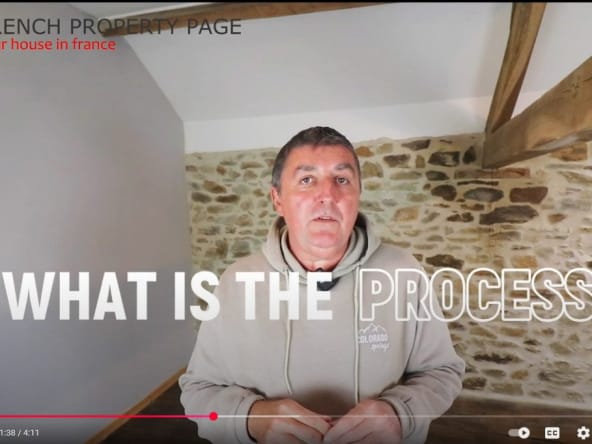Preliminary Contract (Compromis de Vente)
- Signing the contract: The next step is signing a preliminary sale agreement (Compromis de Vente), which is a legally binding contract between the buyer and seller. This is typically signed by both parties at the notary’s office or the seller’s agent.
- Deposit: You will need to pay a deposit, usually around 10% of the purchase price. This is held in escrow by the notary (notaire) or the seller’s agent until the sale is finalized.
- Cooling-off period: After signing the Compromis de Vente, there is a 10-day cooling-off period during which you can back out of the deal without penalty (but you would lose the deposit).
Mortgage Arrangements (if applicable)
- Apply for financing: If you’re financing the purchase through a mortgage, you’ll need to finalize your loan application during this period. The bank or lender will assess your financial situation and approve the loan.
- Loan offer: The lender will send you a formal loan offer (offre de prêt), which is typically valid for a period of 30 days. Once accepted, you’ll proceed with the financing.
Title Search & Legal Checks (by the Notary)
- The notary will carry out due diligence, which includes checking the property’s legal status. This includes verifying the title deed, confirming ownership, ensuring there are no outstanding debts or legal disputes, and checking zoning and planning laws (especially if you plan on renovating).
- Property surveys (optional): If necessary, you can have the property surveyed to check for structural issues, though this isn’t mandatory. It’s usually advised if the property is old or if you’re concerned about specific issues.
Notary Drafts the Final Deed (Acte de Vente)
- Once all legal checks are complete, the notary will draft the final sale deed (Acte de Vente), which will include all the terms of the sale.
- You will receive a copy of this document to review before signing.
Final Inspection
- Final walk-through: You have the right to inspect the property one final time before the sale is completed, to ensure it is in the same condition as when you agreed to purchase it (excluding any normal wear and tear).
Signing of the Final Deed (Acte de Vente)
- Date set for finalization: On the day of closing, both parties (buyer and seller) will sign the final sale deed (Acte de Vente) in front of the notary.
- Payment of the balance: At this point, you’ll pay the remaining balance of the property price, including the notary fees (which can be 7-8% of the purchase price for older properties or around 2-3% for new builds). These fees cover taxes and notary services.
- Transfer of ownership: Once the Acte de Vente is signed and the payment made, you officially become the owner of the property. The notary will register the sale with the French land registry.
Post-Sale
- Change of utilities: Once the property is officially yours, you’ll need to take over utility contracts (water, electricity, gas) in your name.
- Property tax: You’ll also start receiving property tax bills (taxe foncière) as the new owner.
Additional Considerations:
- Notary Fees: These fees can vary depending on the property’s age and price, but for a typical resale property, they are usually around 7-8% of the sale price. This includes taxes, notary costs, and other administrative fees.
- Inheritance Law: French property laws have specific regulations concerning inheritance, so it’s always a good idea to understand how this may affect your property.
- Language Barrier: All documents are in French, so it’s crucial to have a translator or legal professional who can explain everything if you are not fluent in the language.




